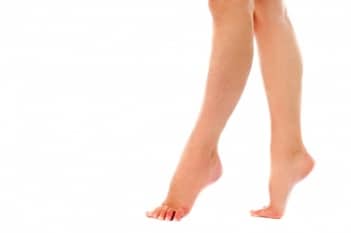Orthopedics: Why Does Neuropathy Cause Foot Pain in Diabetic Patients?

Has your doctor told you that you have neuropathy? Do you have diabetes? Do you have burning pain in your toes or feet? Do you have any ulcers or significant callus formation on your feet? Neuropathy is very common; up to 20 million people suffer from this painful condition in the US. You may very well have neuropathy but you may not know what may be done about it.
Neuropathy is the generic term meaning ‘disease of the nerves’. This problem causes damage to microscopic nerve endings in the hands and feet, but usually in the feet. Neuropathy may occur in a variety of diseases, but most commonly is seen with long-standing diabetes. Some medications like protease inhibitors and chemotherapy agents can cause neuropathy too. Up to 40% of patients actually never get a diagnosis regarding the cause of their neuropathy! Once you have developed neuropathy it is essentially irreversible and all you can do is treat the symptoms and potentially prevent problems.
The nerves that are damaged in neuropathy are called ‘C’ fibers and provide skin sensation or pain and autonomic function. Autonomic function involves sweating and temperature control. Often, people with neuropathy have dry scaly skin on their feet due to the inability to properly regulate sweating and heat while in shoes. Because the small fibers are the tiniest endings of these nerves, diagnostic studies like ‘EMG’ and nerve conduction studies are often negative. However, a negative nerve conduction study does not mean you do not have neuropathy. To truly get a diagnosis of neuropathy, your doctor has to perform a skin biopsy. We do this sort of procedure at Woman’s Orthopedics and Wellness. We believe that if you are to get the best treatment possible, you should have the best diagnosis.
With neuropathy you begin to lose sensation in the feet and also have burning pain in the feet at the same time. You can develop feelings numbness, burning, cold, prickling, pins and needles along with other symptoms. Neuropathy also causes a variety of unpleasant sensations, either spontaneous or evoked. A light breeze, the feeling of clothes, or even a soft touch can cause pain. Often, people with neuropathy develop ulcers and wounds on their feet because they can not feel any damage.
So how does neuropathy develop? Basically, there is a reduction in the actual numbers of small nerves that end in the skin and nearby tissue, including very small blood vessels, or capillaries. Even in Lupus syndrome neuropathy can develop with changes in the nerves and damage to the micro-blood flow at the skin level.
Hyperglycemia exerts increased polyol (sugar breakdown product) and increased oxidative stress to the nerves. The high blood sugar also causes the release of multiple small chemicals that damage the nerve endings. Sorbitol is a byproduct of diabetes and insulin resistance and this substance forms damaging deposits on nerve endings and capillaries as well. Basically, too much sugar causes a significant build up of damaging free-radicals, chemicals and deposits at a microscopic level that then destroy the small ‘C’ fibers. This then leads to all the problems associated with neuropathy.
Image courtesy of stockimages / FreeDigitalPhotos.net
Dr. Meredith Warner is a board certified, Fellowship Trained Foot and Ankle, Orthopedic surgeon practicing in Baton Rouge, Louisiana. Dr. Warner is committed to offering her patients an accurate diagnosis along with a comprehensive treatment plan in order to get them back to a pain free life. Dr. Meredith Warner specializes in the treatment of orthopedic issues, providing operative and non-operative treatment plans of orthopedic problems, including musculoskeletal pain such as chronic back, neck and foot pain, reconstructive surgery of the foot and ankle, arthritis, diabetic, hammer toe, bunion, wound care, work injuries, fitness and nutrition and osteoporosis issues.
{{cta(‘bb456f31-3aff-4ca0-a458-b217882fde1b’)}}




